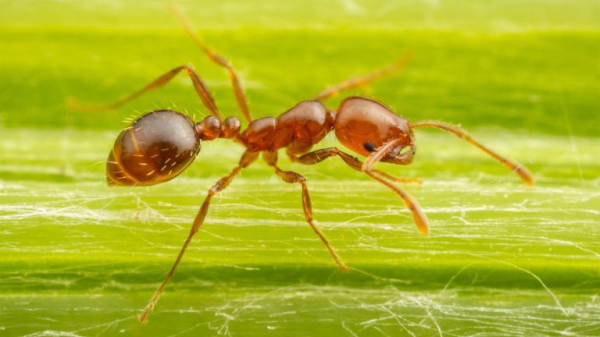
Red fire ants, a destructive invasive species, whose sting is painful and causes irritation and allergic reactions, could be heading to the UK thanks to global warming, scientists have warned.
The insect has reached Europe for the first time, researchers from Current Biology have said, after they found nearly 90 nests in Italy.
Their report said: “We documented 88 nests extending over about 4.7 hectares (11.6 acres or 47,000 square metres) during winter 2022/2023.”
They were found “in Sicily, near the city of Syracuse”,… in an area “bordering a river estuary.”
Now it could spread across the continent to the UK, according to the study team, which used genetic analysis, wind tracking and species distribution modelling to predict its potential range.
Half of the urban areas in Europe are already suitable and predicted climate warming “will favour the expansion of this invasive ant,” the report, published on the magazine’s website, said.
The creature could be able to get a foothold, the report said, “in about 7% of the study region, mainly occupying agricultural areas and, to a lesser extent, urban and protected areas”.
They could not say for sure how or when the fire ants got there, but the researchers said they believed the insects must have arrived from somewhere with lots of human activity, such as the city’s port.
The ants can be aggressive when disturbed and they have a painful sting, which is irritating to the skin and can cause allergic reactions.
Local people said ant stings had increased since 2019, the researchers said.
Red fire ants, or Solenopsis invicta, are classified as one of the world’s worst alien invasive species, and the fifth most costly.
In less than 100 years, the insects have spread out from their native South America into Mexico, the Caribbean and Australia via human trade.
They have now arrived in the US, where the species causes around $6bn (£4.8bn) of damage each year, CNN said.
Red fire ants can quickly form super colonies with multiple queens and prey on invertebrates, larger vertebrates and plants, destroying native plants and driving out native ants, insects and herbivores by out-competing them for food.
